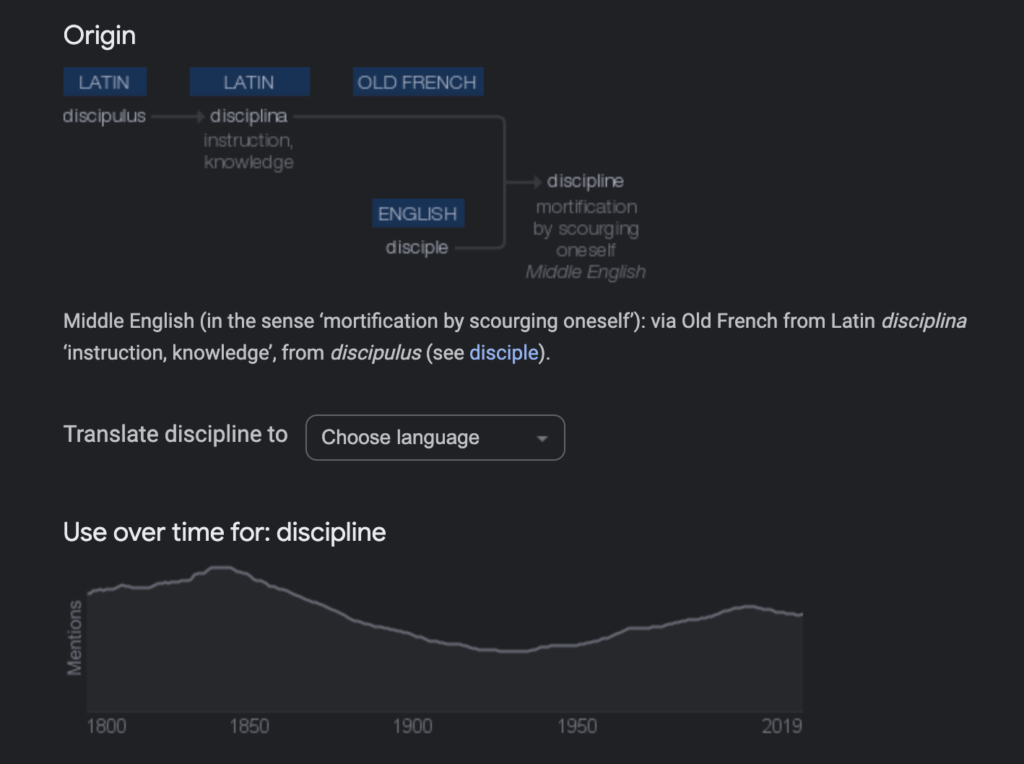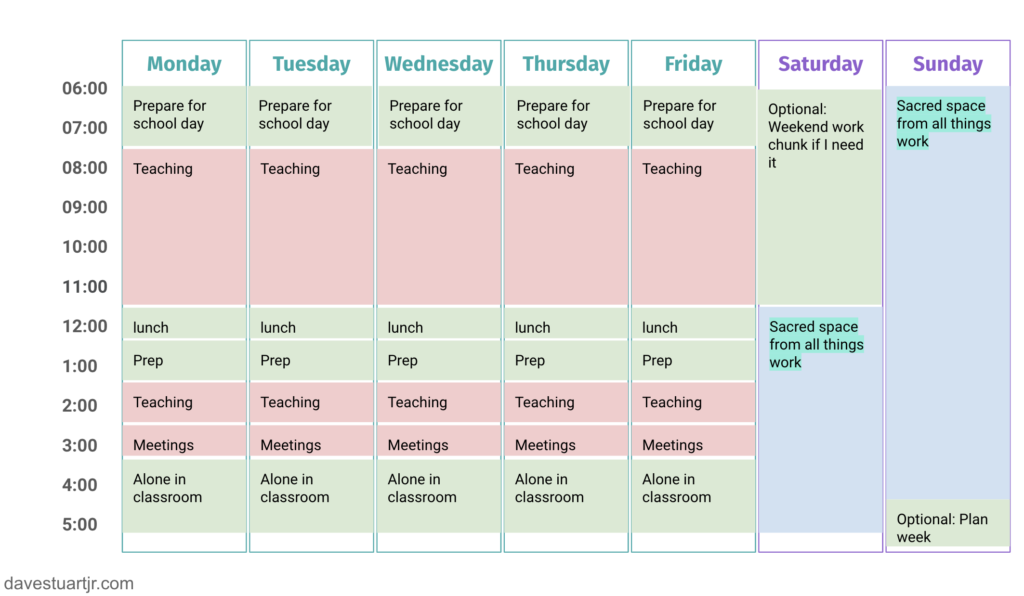Earlier this school year, I was fortunate to spend a day in Arkansas working with early career teachers. Our focus was on establishing a work schedule prior to the start of the school year. It strikes me this morning that fall is a good time for all of us to consider revisiting this important discipline.
The Disciplines of Time Management
In my Time Management Course for teachers, which all of the novice teachers I worked with are working through this school year, I take what I've found to be a novel but effective approach to this important topic of time management. Instead of giving teachers an elaborate system to follow, I equip them with an understanding of ten fundamental disciplines of time management.
Let me pause on that word, discipline. It's a bit out of fashion, to our detriment. We likely dislike it because of some of its less-than-pleasant historical connotations. E.g., in Middle English, it meant something like “mortification by scourging oneself” — not exactly a pleasant- or useful-sounding strategy, right?

When I use the word discipline, however, I'm referring back beyond the Middle English meaning. I mean a practice, an exercise, a way of becoming something that apart from use of the discipline you cannot become.
The best analogy I know is that of the push-up. I can desire upper body strength all I want. I can read all kinds of books on upper body strength. I can watch videos about upper body strength. I can speak with others about upper body strength. I can do all of these things, all of my life, and gain absolutely zero upper body strength.
The only way for me to gain it is to submit myself to the discipline of upper body exercise. I must partner with the reality that muscles do not strengthen via thought or intention; they require use.
So too, I argue in the course, with Time Management for Teachers. You don't need someone's elaborate system or theory for time management so much as you need to slowly transform into the kind of person who makes wise use of time. And the only way to enact this kind of transformation is via submission to certain disciplines. You have to do certain exercises. And you ought to expect in these exercises, just as one would in doing push-ups, that there will be some discomfort along the path of growing.
Constraint is one of the most important disciplines of time management
Now let's hop into the module in the course where I discuss one of the ten disciplines of time management: setting constraints.
Not seeing a video? Click here.
Don't have time for the video? No worries — but as a heads up, you'll miss my telling of the classic Crystal story (see first two minutes).
The gist of the video is that I lay out the case for three basic exercises:
- Create Simple Rules to govern your use of time. In the video, mine were:
- Weekdays: I can start working as early as I want, but I have to be home by 5:30 pm. No working at home.
- Weekends: I can have a Saturday morning work session that must end at 11 am.
- Draft a work schedule. For this I recommend visually representing your standard workweek. (Template below.)
- Add up your magic hours. (We need not get into those here.)

For an editable version of this template, click here.
This weekend, maybe take an hour to save yourself dozens for the next few months
What I'd say to you today colleague, on this fine Friday, is that it may be worth an hour of your weekend to take a look at how time is going for you this year. Consider constructing a work schedule that you'll stick to in the weeks between now and holiday break. And view this schedule-keeping as exercise, just as a gymnast might view the push-up.
I'll close with a line from Annie Dillard:
“How we spend our days is, of course, how we spend our lives. What we do with this hour, and that one, is what we are doing. A schedule defends from chaos and whim. It is a net for catching days.” (Source)
I mean, c'mon — you can't argue with Annie Dillard, right?
In it with you,
DSJR
Alysha Fletcher says
Any idea why it says the link for the template doesn’t work when I click to make a copy? I love this and I love your stuff and I’d love to use it.
Dave Stuart Jr. says
Alysha, try it on a different computer maybe. I’m clicking it now and it does seem to be working.
Alysha Fletcher says
Well I tried that and it’s still not working. It probably has something to do with your permission settings. You can see it because you own it. But if the permissions are restricted then others may not be able to. I’m sorry! I didn’t mean to be a pain.